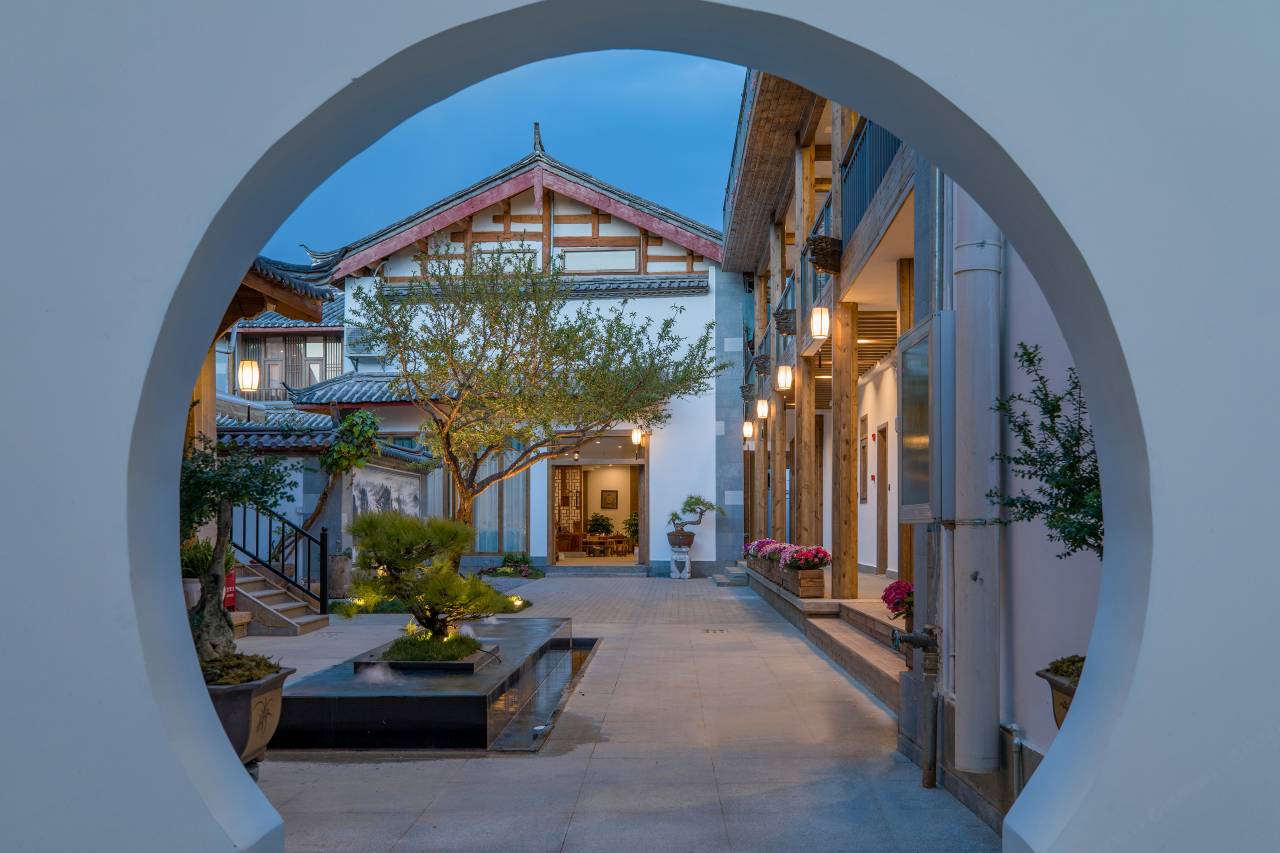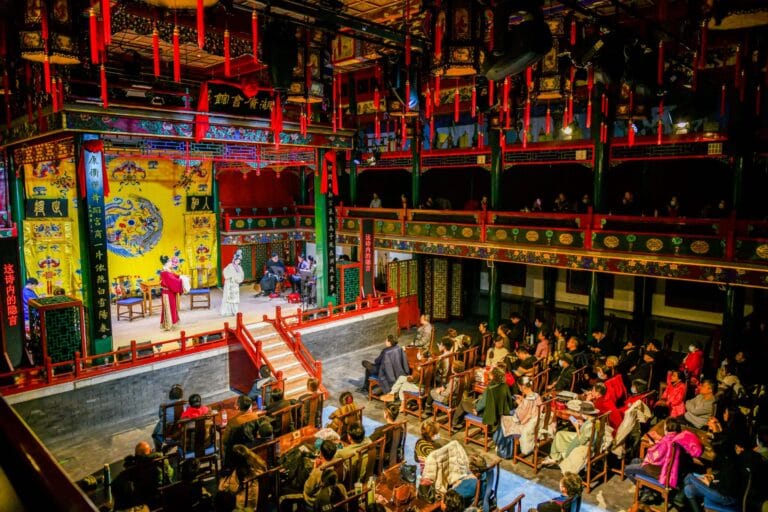Hotels vs Guesthouses in China: Your Complete Guide to Choosing the Perfect Accommodation
Should I stay in a hotel or guesthouse in China? This decision will fundamentally shape your entire Chinese travel experience. After staying in over 800 accommodations across all 34 provinces and organizing tours for more than 3,000 international visitors annually, we can tell you that China presents unique differences between hotels and guesthouses that don’t exist anywhere else in the world.
In China, the gap between hotels and guesthouses represents more than comfort levels or price points. It’s the difference between experiencing China as an observer versus becoming a temporary participant in Chinese daily life. Your accommodation choice determines whether you’ll return home with photos of famous landmarks or with deep cultural understanding and lasting friendships.
Table of Contents
What is Better: Hotel or Guesthouse China?
The answer depends on your specific travel circumstances, but China’s unique cultural and social dynamics create distinct advantages for each accommodation type in different situations.
Hotels in China operate within a highly regulated system designed to serve international visitors. The government requires all star-rated hotels to meet specific standards for foreign guest services, English signage, and Western amenities. This creates a protective bubble that shields travelers from cultural challenges while limiting authentic experiences.
Guesthouses in China function within traditional social networks that have operated for centuries. Family-run properties integrate guests into community life through shared meals, local introductions, and participation in daily routines. This immersion provides unfiltered access to Chinese culture but requires adaptability and cultural sensitivity.
The fundamental difference lies in China’s collective versus individual cultural orientation. Hotels emphasize individual privacy and standardized services that align with Western expectations. Guesthouses reflect Chinese communal living traditions where guests become temporary family members with corresponding social obligations and privileges.
Hotels vs Guesthouses in China: Core Differences
Complete Comparison Overview
Aspect | Hotels in China | Guesthouses in China |
|---|---|---|
Language Support | Professional English staff, bilingual signage, translation services | Limited English, creative communication, cultural exchange opportunities |
Cultural Integration | Sanitized tourist information, Western-friendly recommendations | Authentic local insights, family introductions, community integration |
Service Style | Standardized protocols, professional distance, individual privacy | Personal attention, family-style care, community involvement |
Location Types | Business districts, tourist zones, transportation hubs | Historic neighborhoods, scenic areas, traditional architecture |
Price Range | ¥300-3000+ per night | ¥80-800 per night |
Booking Difficulty | Easy online platforms, instant confirmation | May require local contacts, advance communication |
Food Experience | International buffets, adapted Chinese dishes | Traditional family meals, regional specialties, cooking lessons |
Privacy Level | High individual privacy, minimal social interaction | Shared spaces, community dining, family integration |
Emergency Support | 24/7 professional assistance, medical facility connections | Community-based help, local network support |
Cultural Learning | Limited, tourist-focused information | Deep immersion, daily life participation |
Language and Communication Realities
Hotel Communication: International hotel chains in China employ English-speaking staff at front desks, provide bilingual signage throughout properties, and offer translation services for guest needs. Staff receive training specifically for foreign guest interactions, understanding Western communication styles and expectations.
However, this language comfort zone can limit cultural learning. Hotel staff often provide sanitized versions of local information, recommending tourist-friendly restaurants and activities rather than authentic local experiences.
Guesthouse Communication: Most guesthouse owners speak limited English, forcing meaningful cultural exchange through creative communication methods. This apparent disadvantage often becomes the source of the most memorable travel experiences.
Chinese hosts demonstrate remarkable patience with language barriers, using translation apps, drawings, and gestures to communicate. These interactions teach travelers about Chinese problem-solving approaches, family dynamics, and social customs impossible to observe in hotel environments.
Food Culture Integration
Hotel Dining: Chinese hotels, especially international chains, provide familiar Western breakfast options, English menus, and sanitized local dishes adapted for foreign palates. Hotel restaurants operate independently from local food culture, often importing ingredients and cooking methods that create recognizable but inauthentic experiences.
Guesthouse Dining: Family-run properties serve traditional Chinese breakfasts, introduce guests to local specialties, and often include meals prepared by the host family. You’ll experience regional cooking techniques, seasonal ingredients, and food customs that reveal cultural values and family traditions.
In Beijing hutong guesthouses, breakfast might include warm soymilk, fresh-made youtiao (fried dough sticks), and pickled vegetables prepared according to family recipes passed down through generations. This contrasts sharply with hotel continental buffets featuring croissants and coffee.
Regional Food Differences: Southern China guesthouses in Guangxi or Yunnan serve dramatically different breakfast foods than northern properties in Beijing or Harbin, providing authentic regional education impossible in standardized hotel dining.
Dig deeper: Regional Chinese Cuisines and Culinary Traditions
Social Interaction Patterns
Hotel Social Dynamics: Hotels maintain professional distance between staff and guests, creating predictable but impersonal interactions. Guests interact primarily with other international travelers in hotel lobbies, restaurants, and tour groups arranged through concierge services.
Guesthouse Social Integration: Chinese guesthouse owners often invite guests to participate in family activities, introduce them to neighbors, and include them in community events. These interactions provide insights into Chinese social hierarchies, family structures, and community relationships.
During Chinese New Year celebrations, guesthouse guests might join family reunion dinners, participate in traditional activities, and witness customs that most tourists never experience. Hotel guests typically observe these celebrations from a distance or through organized cultural performances.
Privacy and Personal Space Concepts
Hotel Privacy Standards: Chinese hotels follow international privacy norms with individual rooms, private bathrooms, and minimal interaction unless requested. This aligns with Western expectations but doesn’t reflect traditional Chinese living arrangements.
Guesthouse Community Living: Traditional Chinese courtyards emphasize shared spaces and community interaction. Guesthouse guests often share common areas, participate in group meals, and experience the Chinese concept of collective harmony over individual privacy.
This cultural difference can initially feel uncomfortable for Western travelers accustomed to hotel anonymity, but it provides authentic insights into Chinese social values and relationship building.
When to Choose Hotels vs Guesthouses: Decision Matrix
Accommodation Selection by Travel Type
Travel Purpose | Recommended Choice | Key Reasons | Best Locations |
|---|---|---|---|
Business Travel | Hotels | English support, meeting facilities, professional environment | Beijing CBD, Shanghai Lujiazui, Guangzhou Tianhe |
First China Visit | Hotels | Gradual cultural introduction, familiar amenities, safety net | Major cities: Beijing, Shanghai, Xi’an |
Family with Kids | Hotels | Child safety, predictable routines, medical access | All major destinations |
Cultural Immersion | Guesthouses | Authentic experiences, local connections, traditional lifestyle | Ancient towns: Lijiang, Pingyao, Zhouzhuang |
Extended Stay | Guesthouses | Language learning, deep relationships, local integration | Anywhere with cultural significance |
Photography/Research | Guesthouses | Community access, authentic situations, local knowledge | Rural areas, minority regions |
Budget Travel | Guesthouses | 40-60% cost savings, included services, unique value | Smaller cities, scenic areas |
Adventure Activities | Guesthouses | Local guides, equipment access, outdoor expertise | Yangshuo, Zhangjiajie, Tibet |
Seasonal and Regional Considerations
| Region/Season | Hotels | Guesthouses | Specific Considerations |
|---|---|---|---|
| Northern China Winter | ✓ Recommended | △ Limited | Reliable heating systems crucial |
| Northern China Summer | △ Optional | ✓ Recommended | Pleasant weather for cultural experiences |
| Southern China Year-round | △ Optional | ✓ Recommended | Mild climate supports guesthouse comfort |
| Tibet/High Altitude | ✓ Recommended | △ Careful selection | Medical facility access important |
| Ancient Towns | △ Limited options | ✓ Recommended | Historic buildings offer authentic stays |
| Business Centers | ✓ Recommended | △ Limited | Professional infrastructure needed |
| Peak Holiday Seasons | ✓ Recommended | △ May close | Service continuity during Chinese holidays |
Cost Comparison by City Tier
City Category | Hotel Price Range (¥/night) | Guesthouse Price Range (¥/night) | Value Advantage |
|---|---|---|---|
Tier 1 Cities (Beijing, Shanghai, Shenzhen) | 400-2500 | 120-800 | Guesthouses 50-70% savings |
Tier 2 Cities (Xi’an, Chengdu, Hangzhou) | 250-1500 | 80-500 | Guesthouses 60-70% savings |
Ancient Towns (Lijiang, Pingyao, Yangshuo) | 300-1200 | 150-600 | Guesthouses offer unique value |
Rural Destinations (Tibet, Xinjiang villages) | 200-800 | 60-300 | Guesthouses often only option |
When to Choose Hotels in China

Business Travel and Professional Requirements
Major Business Cities: Choose hotels in Beijing, Shanghai, Shenzhen, and Guangzhou when conducting business. These cities offer extensive hotel infrastructure specifically designed for international business needs.
Chinese business culture requires reliable meeting spaces, consistent internet connectivity, and professional presentation standards. Hotels provide business centers, meeting rooms, and support services that facilitate successful professional interactions.
Government and Official Meetings: When meeting with Chinese government officials or state-owned enterprises, staying in internationally recognized hotels demonstrates respect and professionalism that can influence business outcomes.
First-Time China Visitors
Cultural Adjustment Period: Hotels provide gradual cultural introduction for travelers experiencing China for the first time. The familiar environment allows processing of cultural differences without overwhelming immersion.
Safety Net for Uncertainty: When uncertain about local customs, food safety, or communication challenges, hotels offer immediate support and problem resolution that reduces travel stress.
Major Tourist Cities: Beijing, Shanghai, Xi’an, and Guilin offer excellent hotel infrastructure that supports first-time visitors while providing easy access to major attractions.
Family Travel with Young Children
Consistent Routines: Children benefit from predictable hotel amenities, familiar food options, and reliable utilities that support consistent daily routines during international travel.
Medical Emergency Access: Hotels maintain relationships with international-standard medical facilities and can coordinate emergency care in English, crucial when traveling with children.
Safety and Supervision: Hotel security protocols, supervised swimming pools, and child-safe room designs provide peace of mind for parents navigating unfamiliar environments.
Peak Travel Seasons
Chinese National Holidays: During Golden Week (October 1-7) and Spring Festival (Chinese New Year), hotels maintain professional service standards despite increased demand. Guesthouses may close for family celebrations or become overwhelmed with domestic tourists.
Summer High Season: July and August bring extreme heat to most of China. Hotels provide reliable air conditioning, while some traditional guesthouses lack adequate cooling systems.
Extreme Weather Conditions
Winter in Northern China: Beijing, Harbin, and other northern cities experience severe winter weather. Hotels guarantee heating systems, while traditional courtyard guesthouses may struggle with temperature control.
Monsoon Season: Southern China’s rainy season (May-September) requires reliable indoor amenities. Hotels offer covered parking, indoor entertainment, and weather protection that some guesthouses cannot match.
When to Choose Guesthouses in China

Cultural Immersion Goals
Ancient Towns and Historic Sites: Lijiang, Pingyao, Zhouzhuang, and similar destinations offer authentic guesthouse experiences in traditional architecture. These locations showcase Chinese cultural heritage more effectively than modern hotels.
UNESCO World Heritage Sites: Many heritage sites feature guesthouses in historically significant buildings that provide educational value beyond standard accommodations.
Traditional Festivals and Celebrations: Experiencing Chinese festivals from guesthouse perspectives offers participation opportunities rather than tourist observation. Hosts often include guests in family celebrations, temple visits, and community activities.
Extended Stays and Deep Exploration
Language Learning Opportunities: Extended guesthouse stays accelerate Chinese language acquisition through daily interactions with hosts and local communities.
Cultural Research and Photography: Travelers documenting Chinese culture benefit from guesthouse integration into local communities that provides access to authentic situations and relationships.
Rural and Remote Destinations: Villages in Tibet, Xinjiang, Inner Mongolia, and other remote regions often offer only guesthouse accommodations, but these provide unparalleled access to minority cultures and traditional lifestyles.
Budget-Conscious Travel
Value for Unique Experiences: Guesthouses typically cost 40-60% less than comparable hotels while providing distinctive experiences unavailable at any hotel price point.
Included Services: Many guesthouses include meals, local tours, and cultural activities in their rates, providing better overall value than hotels charging separately for each service.
Long-term Discounts: Extended stays at guesthouses often include significant discounts and additional services that hotels don’t typically offer.
Adventure and Outdoor Activities
Natural Scenic Areas: Guesthouses in locations like Yangshuo, Zhangjiajie, or Jiuzhaigou integrate outdoor activities with accommodation, offering hiking guides, equipment rental, and local expertise.
Seasonal Activities: Winter skiing in Harbin, spring flower viewing in Yunnan, or autumn photography in Jiuzhai Valley benefit from guesthouse owners’ local knowledge and seasonal activity coordination.
Regional Accommodation Strategies
China’s Regional Accommodation Guide
Region | Best Months for Hotels | Best Months for Guesthouses | Key Considerations |
|---|---|---|---|
Northern China (Beijing, Harbin, Inner Mongolia) | Dec-Feb (heating essential) | Jun-Aug (pleasant weather) | Winter heating crucial, summer cultural activities |
Eastern China (Shanghai, Hangzhou, Suzhou) | Year-round options | Year-round options | Balanced climate, choose by purpose |
Southern China (Guangzhou, Guilin, Kunming) | Jul-Aug (peak comfort) | Year-round preferred | Mild climate supports guesthouse stays |
Western China (Tibet, Xinjiang, Qinghai) | May-Oct (accessibility) | Jun-Sep (weather dependent) | Altitude and infrastructure challenges |
Central China (Wuhan, Changsha, Zhengzhou) | Dec-Feb, Jul-Aug | Apr-Jun, Sep-Nov | Avoid extreme temperatures |
Specific Destination Recommendations
Destination Type | Hotels Recommended | Guesthouses Recommended | Reasoning |
|---|---|---|---|
UNESCO Sites | Pingyao (winter only) | Most heritage towns | Historic buildings offer authentic experiences |
Mountain Areas | Huangshan (winter) | Yangshuo, Zhangjiajie | Local guides and outdoor activity access |
Water Towns | Rarely necessary | Zhouzhuang, Wuzhen, Tongli | Traditional architecture integration |
Minority Regions | Cities only | Rural villages preferred | Cultural immersion with ethnic families |
Modern Metropolises | Beijing CBD, Shanghai Bund | French Concession, Hutongs | Balance efficiency with cultural zones |
Advanced Accommodation Strategies
Hybrid Travel Approach Success Matrix
Trip Segment | Accommodation Type | Duration Recommendation | Purpose |
|---|---|---|---|
Arrival Days | Hotel | 1-2 nights | Jet lag recovery, orientation |
Business Portion | Hotel | As required | Professional meetings, reliability |
Cultural Exploration | Guesthouse | 3-7 nights | Deep immersion, relationship building |
Ancient Town Visits | Guesthouse | 2-4 nights | Historic atmosphere, local integration |
Transit/Departure | Hotel | 1 night | Logistics, early flights |
Seasonal Strategy Planning
Season | Northern Strategy | Southern Strategy | Special Considerations |
|---|---|---|---|
Spring (Mar-May) | Mix hotels/guesthouses | Guesthouse preferred | Mild weather supports cultural stays |
Summer (Jun-Aug) | Guesthouses recommended | Guesthouses with AC | Peak travel season, book early |
Autumn (Sep-Nov) | Guesthouses ideal | Guesthouses preferred | Best weather for cultural immersion |
Winter (Dec-Feb) | Hotels recommended | Hotels in harsh climates | Heating systems crucial |
Practical Decision Framework
Evaluate Your Travel Profile
Risk Tolerance: Conservative travelers benefit from hotel predictability, while adventurous travelers thrive in guesthouse environments.
Cultural Experience Goals: Observation-focused travel supports hotel choices, while participation-oriented goals favor guesthouses.
Language Confidence: Travelers comfortable with communication challenges can maximize guesthouse experiences, while those preferring English support should choose hotels.
Consider Travel Logistics
Arrival and Departure Days: Hotels near airports and transportation hubs simplify luggage management and travel connections.
Itinerary Flexibility: Rigid schedules benefit from hotel efficiency, while flexible itineraries allow guesthouse relationship development.
Group Size and Composition: Solo travelers and couples integrate more easily into guesthouse environments than large groups requiring multiple rooms and coordinated services.
Match Destinations with Accommodation Types
Ancient Cultural Sites: Prioritize guesthouses for authentic experiences in historic locations.
Modern Business Cities: Choose hotels for efficiency and international standards.
Natural Scenic Areas: Select guesthouses for local expertise and outdoor activity integration.
Transportation Hubs: Utilize hotels for arrival/departure convenience and connection reliability.
Advanced Accommodation Strategies
Hybrid Approaches
Multi-City Combinations: Experienced travelers often combine hotel and guesthouse stays within single trips to optimize different destination experiences.
Seasonal Adjustments: Winter hotel stays in northern cities combined with shoulder-season guesthouse experiences in southern destinations.
Purpose-Driven Selection: Hotels for business portions of trips, guesthouses for leisure and cultural exploration segments.
Booking and Preparation Strategies
Advance Research: Guesthouse bookings require more preparation time for communication and cultural preparation than standard hotel reservations.
Language Preparation: Basic Mandarin phrases and translation app familiarity enhance guesthouse experiences significantly.
Cultural Education: Understanding Chinese social customs, gift-giving practices, and family interaction norms improves guesthouse stays.
Managing Expectations and Outcomes
Flexibility Requirements: Guesthouse stays require adaptability to different standards, schedules, and social expectations.
Communication Patience: Language barriers create opportunities for cultural connection rather than frustrating obstacles when approached positively.
Experience Documentation: Guesthouse stays provide rich material for travel journals, photography, and cultural understanding that hotels cannot match.
Frequently Asked Questions: Hotels vs Guesthouses in China
Should I stay in a hotel or guesthouse in China?
The choice depends on your travel goals and comfort level. Choose hotels for business travel, first-time China visits, or when you need reliable English support and familiar amenities. Select guesthouses for cultural immersion, authentic experiences, and deeper connections with local communities. Many experienced travelers combine both types during their China journey.
What is better hotel or guesthouse China for solo travelers?
Guesthouses typically offer better experiences for solo travelers seeking cultural connections. The communal atmosphere naturally facilitates interactions with other travelers and locals. Guesthouse owners often become cultural guides, sharing insider knowledge about local attractions and customs. However, solo female travelers should research specific locations for safety considerations.
Are guesthouses in China safe for foreigners?
Yes, legitimate guesthouses in China are generally safe for foreign travelers. All accommodations serving foreigners must maintain proper licensing and registration capabilities. However, safety levels vary by location and property management. Research reviews, verify proper licensing, and choose guesthouses in tourist-friendly areas for optimal safety.
How much do hotels vs guesthouses cost in China?
Hotels typically range from ¥300-3000+ per night depending on location and star rating. Guesthouses usually cost ¥80-800 per night, offering 40-60% savings compared to similar-quality hotels. Ancient town guesthouses may cost ¥150-600, while luxury boutique guesthouses can reach ¥800+ but still provide unique value that hotels cannot match.
Can I book Chinese guesthouses online?
Some guesthouses appear on international platforms like Booking.com or Agoda, but many authentic properties require direct contact or booking through local platforms like Trip.com. Popular destinations offer more online options, while remote locations may need advance communication through phone calls or local travel agencies.
Do Chinese guesthouses have English-speaking staff?
Most family-run guesthouses have limited English capabilities, though owners often use translation apps and show remarkable patience with communication challenges. Properties in major tourist destinations typically have better English support. The language barrier often becomes part of the cultural experience rather than a significant obstacle.
What amenities can I expect in Chinese guesthouses?
Basic guesthouses provide clean rooms, private or shared bathrooms, and WiFi access. Traditional properties may feature courtyards, local architectural elements, and home-style meals. Higher-end guesthouses offer hotel-like amenities while maintaining authentic character. Air conditioning availability varies, especially in traditional buildings.
Are Chinese guesthouses clean and hygienic?
Cleanliness standards vary significantly between properties. Established guesthouses in tourist areas typically maintain good hygiene standards, while remote properties may have more basic facilities. Reading recent reviews and choosing properties with good ratings helps ensure acceptable cleanliness levels. Standards have improved dramatically over the past decade.
Can families with children stay in Chinese guesthouses?
Yes, but considerations include safety features, room layouts, and amenities suitable for children. Some guesthouses offer family rooms and child-friendly activities, while others may not have appropriate facilities. Hotels generally provide more predictable family amenities, but guesthouses can offer unique cultural education opportunities for older children.
What’s the difference between guesthouses in ancient towns vs modern cities?
Ancient town guesthouses emphasize historical architecture and traditional experiences, often occupying centuries-old buildings with cultural significance. City guesthouses focus more on convenience and modern amenities while providing local neighborhood experiences. Ancient town properties typically offer more unique character but may have limited modern facilities.
How do I communicate at Chinese guesthouses without speaking Mandarin?
Download translation apps like Google Translate or Pleco before arrival. Learn basic phrases for common needs. Most guesthouse owners show patience with communication challenges and often use gestures, drawings, and smartphone apps to communicate. The effort to communicate often becomes a rewarding cultural exchange experience.
Do Chinese guesthouses include meals?
Many guesthouses include traditional Chinese breakfast, and some offer dinner options featuring local specialties. Family-run properties often invite guests to join household meals, providing authentic food experiences. Meal inclusion varies by property and should be confirmed during booking. Hotel restaurants typically offer more predictable but less authentic dining options.
When should I choose hotels over guesthouses in China?
Choose hotels during harsh winter weather in northern China, for business travel requiring professional amenities, when traveling with young children needing consistent routines, during Chinese national holidays when guesthouses may close, in unfamiliar destinations where language barriers create stress, or when health conditions require immediate medical facility access.
Making Your Final Decision
The hotels versus guesthouses decision in China ultimately reflects your travel philosophy and specific trip requirements. Hotels excel at providing comfort, predictability, and international standards that support business travel, family trips, and cultural adjustment needs. Guesthouses offer authentic experiences, community integration, and cultural education that transform tourists into cultural participants.
Our Professional Recommendation: Choose hotels when reliability matters most and guesthouses when authenticity drives your travel goals. The most rewarding China experiences often combine both accommodation types strategically throughout your journey.
Your accommodation choice shapes every aspect of your China experience from daily interactions to lasting memories. Choose thoughtfully, prepare accordingly, and remain open to the unique opportunities that each accommodation type provides in this remarkable country.
The Chinese hospitality landscape continues evolving rapidly, offering increasingly sophisticated options for international travelers. Whether you prefer the security of international hotel standards or the adventure of authentic guesthouse experiences, China provides accommodation choices that can enhance any travel style or cultural curiosity level.








